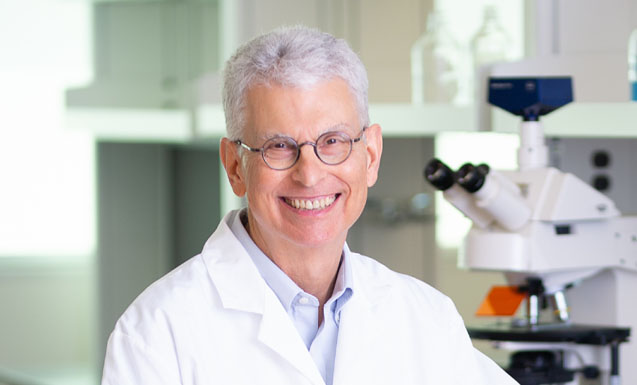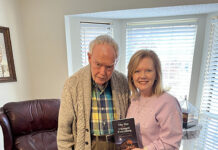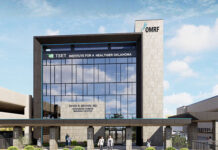
Physician-scientist Rod McEver, M.D., who returned to the place of his high school internship and became one of the state’s preeminent scientists, retired Monday following a 35-year career at the Oklahoma Medical Research Foundation.
McEver, a graduate of Oklahoma City’s John Marshall High School, first came to OMRF as a Sir Alexander Fleming Scholar at age 17. He earned his bachelor’s degree from Yale University and attended medical school at the University of Chicago before returning to OMRF to open his lab in 1987.
The hematologist and cardiovascular biologist served the foundation as a principal investigator, program chair and, since 2016, as its vice president of research. He will continue to support OMRF in an emeritus role as a Distinguished Career Scientist.
“I can think of no one who better personifies OMRF’s mission than Dr. Rod McEver,” said OMRF President Andrew Weyrich, Ph.D. “Not only has his work made a difference for patients worldwide, but he has been an incredible mentor to hundreds of scientists. He is who we all aspire to be.”
McEver’s pioneering work with blood cells led to his discovery of P-selectin, a molecule that plays a crucial role in inflammation and blood clotting. That discovery ultimately gave birth to the first FDA-approved treatment for the pain crises in sickle cell disease. The condition affects an estimated 100,000 Americans and 5 million people worldwide.
Succeeding McEver as vice president of research is OMRF scientist Courtney Griffin, Ph.D., who holds the foundation’s Scott Zarrow Chair in Biomedical Research. Her lab studies blood vessel development and its connection to disease and good health. She joined OMRF in 2008.
Griffin served as scientific director for the Oklahoma Center for Adult Stem Cell Research from 2019 to 2023 and is an adjunct professor of cell biology at the University of Oklahoma Health Sciences Center. She earned her doctorate at the University of California, San Francisco, following her bachelor’s degree at Harvard University.
“Dr. McEver’s mentorship over the last 15 years has been critical to my development as a thoughtful researcher and leader,” said Griffin. “He is the ultimate model of a scientific leader, and I am grateful for how he’s prepared me for this new role.”














